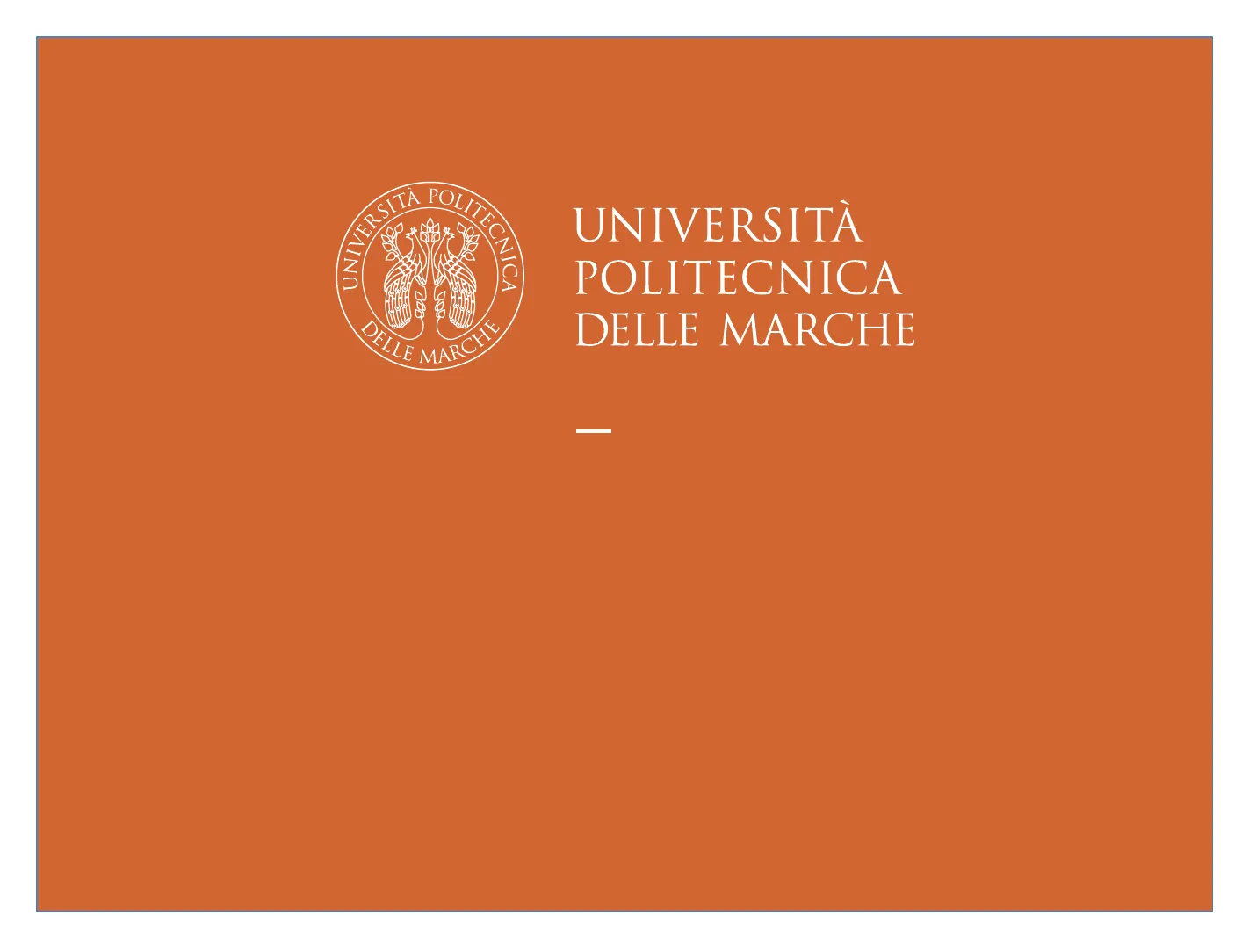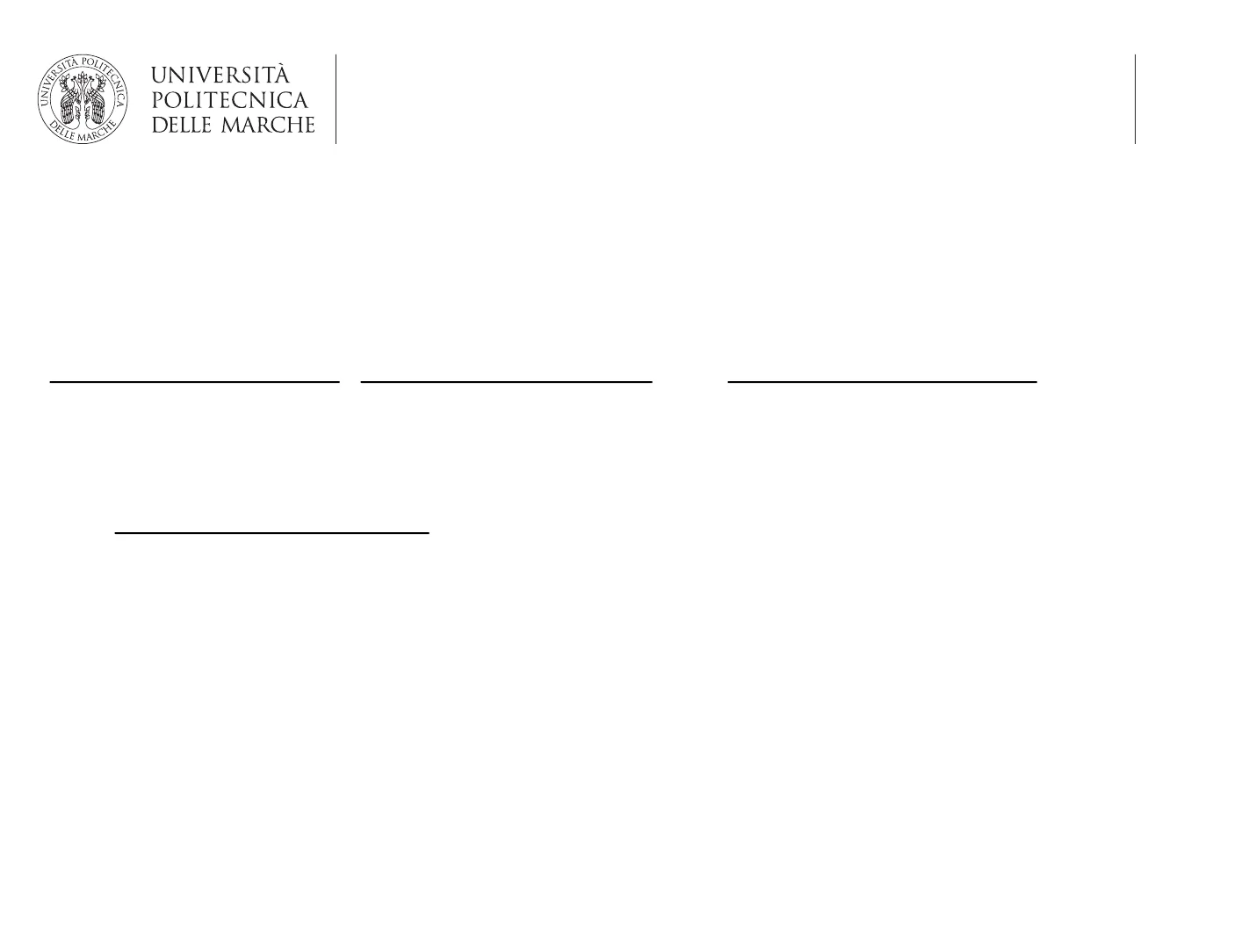Fundamentals of IT Law: ISP Liability and Legal Principles
Slides from Università Politecnica Delle Marche about Fundamentals of IT Law. The Pdf explores internet service provider liability, distinguishing between passive and active ISPs, and delves into legal principles like proximity and burden of proof. This University level Law material is suitable for self-study.
See more35 Pages


Unlock the full PDF for free
Sign up to get full access to the document and start transforming it with AI.
Preview
Internet Service Providers' Liability: Passive and Active ISPs
1
SI
CNICA
UN
E
DELL
RC
UNIVERSITÀ
POLITECNICA
DELLE MARCHE
-
Facoltà di Economia "Giorgio Fuà"
Fundamentals of
IT LAW
Prof. Roberto Ruoppo
www.univpm.it2
ERSITA PO
UNIVERS
ECNICA
DELLE MARCHE
UNIVERSITÀ
POLITECNICA
DELLE MARCHE
Internet service providers'
liability
Passive and Active Internet Service Providers
Different notions, different powers and different liabilities
This is a classification carried out by jurisdictional authorities: it
is a case-law creation (since from a strict legal point of view the
only subject that is expressly recognized is the passive one)
Only for passive ISP powers and duties are legally settled3
Defining Active ISP Requirements
ERSITA PO
UNIVERS
ECNICA
900
DELLE MARCHE
UNIVERSITÀ
POLITECNICA
DELLE MARCHE
Internet service providers'
liability
Pursuant to the relevant case-law (such as, e.g., Coty v. eBay)
Active ISP cannot benefit from the exemption provided by EU
Directive 2000/31
Which are the requirements useful to define an ISP as an active
one:
- Filter; selection; indexing
- Aggregation; evaluation; promotion of contents
- A system for evaluation of users' behaviours in order to
optimize the offer of contents
Active ISP is entitled to manage data and contents published by
users in a way that makes it aware about the nature of the
content that has been uploaded by them (these indexes need to
be assessed on a case-by-case basis)
Passive ISP Activities and Functioning
ERSITA PO
UNIVERS
ECNICA
DELLE MARCHE
UNIVERSITÀ
POLITECNICA
DELLE MARCHE
Internet service providers'
liability
4
Passive ISP: what are the activities that a passive ISP is entitled to
exercise?
We deal with a passive ISP when its role is limited to technical
and automatic storage, transmission or hosting data shared by
users: this is the typical activity attributable to social networks,
third party content aggregators, blogs ...
Even though it is not always true that these subjects are only able
to exercise a form of neutral or automatic processing of data or
contents (it will depend from their concrete functioning and their
powers)5
ISP Liability: Negligence and Objective Regimes
ERSITA PO
UNIVERS
ECNICA
DELLE MARCHE
UNIVERSITÀ
POLITECNICA
DELLE MARCHE
Internet service providers'
liability
All legal rules concerning ISP liability are modelled on a
paradigm of liability deriving from negligence or willful
behaviour:
- It means that objective liability regimes are rejected (see in
this regard EU Directive 2000/31; EU Regulation 2022/2065;
Section 230 US Code) - The reason sorrounding this approach: not limiting ISP
activities by imposing too harmful obstacles deriving from
duties of control or monitor. The aim was to encourage ISP
activities
Negligence and ISP Liability: The Negative Approach
ERSITA PO
UNIVERS
ECNICA
DELLE MARCHE
UNIVERSITÀ
POLITECNICA
DELLE MARCHE
Internet service providers'
liability
6
What does it mean that ISP liability is founded on negligence?
- Their liability can arise only when they have been aware of
the illicit content that has been uploaded. And
notwithstanding their knowledge about this content, they
did not adopt useful initiatives in order to remove them
This is the reason why a «negative approach» is considered
to apply when denscribing their liability:
It is firstly provided an exemption of liability; establishing a
responsibility of these subjects only when some requirements
are met (negligence, awareness of the illicit content, lack of
removing actions)7
Burden of Proof for ISP Responsibility
ERSITA PO
UNIVERS
ECNICA
000
DELLE MARCHE
UNIVERSITÀ
POLITECNICA
DELLE MARCHE
Internet service providers'
liability
The negative approach in providing ISP liability has an
important role also in allocating the burden of proof for their
responsibility
- How does usually work the liability regime for illicit? The
person who is claiming the commission of an illicit has to
prove the constitutive elements of the illicit - The person who has been harmed by a specific behaviour
has the duty to prove these requirements: he/she is the
claimant !; while the ISP will be the defendant
Constitutive Elements of an Illicit Act
ERSITA PO
UNIVERS
ECNICA
DELLE MARCHE
UNIVERSITÀ
POLITECNICA
DELLE MARCHE
Internet service providers'
liability
8
What are the constitutive elements of an illicit?
- Behaviour= what is the behaviour in this case?
- Damage= what kind of injury can be involved?
- Causal link between the behaviour and the damage;
- Subjective element of the author (in term of negligence or
willingness)
In the absence of only one of these requirements the claim
cannot be upheld
Sometimes a presumption can be invoked, in order to make
easier the procedural duty of the claimant
Proving Awareness for Passive ISP Liability
ERSITA PO
UNIVERS
ECNICA
DELLE MARCHE
UNIVERSITÀ
POLITECNICA
DELLE MARCHE
9
Internet service providers'
liability
Assuming that we are dealing with a passive ISP, it will be the
claimant (so called «right-holder>>) the person entitled to prove
the condition of awareness for ISP about the illicit content that
is the object of the claim; and the consequent lack of any
removing action by the platform
How the condition of awareness can be proven?10
Methods to Prove Awareness
ERSITA PO
UNIVERS
ECNICA
DELLE MARCHE
UNIVERSITÀ
POLITECNICA
DELLE MARCHE
Internet service providers'
liability
How the condition of awareness can be proven?
By alleging a notification made by the right-holder itself, or by
an administrative or jurisdictional authority= noticing the ISP
will be useful to make the latter mindful about the commission
of an illicit
How the lack of removing action can be shown?11
Demonstrating Lack of Removing Action
ERSITA PO
UNIVERS
ECNICA
DELLE MARCHE
UNIVERSITÀ
POLITECNICA
DELLE MARCHE
Internet service providers'
liability
How the lack of removing action can be shown?
- Demonstrating that the illicit content is still available on the
platform; - Or that has been available for a while12
Claimant's Role in Proving Passive ISP Involvement
ERSITA PO
UNIVERS
ECNICA
000
DELLE MARCHE
UNIVERSITÀ
POLITECNICA
DELLE MARCHE
Internet service providers'
liability
Assuming that we are dealing with a passive ISP, it will be the
claimant (so called «right-holder») the person entitled to prove
the condition of awareness for ISP about the illicit content that
is the object of the claim; and the consequent lack of any
removing action by the platform
Why it is for the claimant to prove these conditions?
Because of the exemption of liability generally provided for
passive ISP: this exemption can be overcome by proving the
involvement of the ISP in uploading informations on its platform
(there is a relative presumption of lack of knowledge)
It is this involvement to justify a different solution for ISP
liability13
Active ISP: Proving Nature and Liability
ERSITA PO
UNIVERS
ECNICA
DELLE MARCHE
UNIVERSITÀ
POLITECNICA
DELLE MARCHE
Internet service providers'
liability
Assuming that we are dealing with an active ISP
- First question: who is the subject having the duty to prove
the active nature of ISP at stake? - Second question: after the active nature has been proven,
who has to show the ISP liability?ARSITA PO
UNIVERS
ECNICA
DELLE MARCHE
UNIVERSITÀ
POLITECNICA
DELLE MARCHE
Internet service providers'
liability
14
Claimant's Duty to Prove Active Nature
Assuming that we are dealing with an active ISP
- First question: who is the subject having the duty to prove
the active nature of ISP at stake?
It is for the claimant to prove that the ISP at issue has an
active nature: it is the claimant that should allege and
produce all the elements that can be useful in order to prove
the active management of data by the ISP
This duty can be considered to have been satisfied when the
functioning of the platform has been shown and when its
control of contents uploaded have been proven: by, e.g.,
showing the exploitation of informations shared through the
advertisement used on the platform (or indexing)15
Platform's Obligation to Show Measures Taken
ARSITA PO
UNIVERS
ECNICA
400
DELLE MARCHE
UNIVERSITÀ
POLITECNICA
DELLE MARCHE
Internet service providers'
liability
Assuming that we are dealing with an active ISP
Second question: after the active nature has been proven, who
has to show the ISP liability?
When we are dealing with an active ISP it is the platform that
has the obligation to show that it has adopted all the possible
activities in order to avoid the commission of the illicit
behaviour
- How this duty can be considered to having been satisfied?
Proving to have adopted all the measures useful to promptly
remove the content uploaded - Showing, for example, that the content was uploaded for a
limited period of time and then was duly obscured16
Rationale of Burden of Proof Allocation: Proximity Principle
ERSITA PO
UNIVERS
ECNICA
DELLE MARCHE
UNIVERSITÀ
POLITECNICA
DELLE MARCHE
Internet service providers'
liability
What is the rationale of the descripted allocation of the burden
of proof?
- The most important principle concerning the allocation of the
burden of proof is represented by the proof's proximity - Proof's proximity means that the entity or the person that
has the availability of a specific information has the duty to
prove it, to prove its occurrence
Is the claimant always able to have access to the powers and
data owned by the defendant?17
Processual Tools to Lighten Burden of Proof
ERSITA PO
UNIVERS
ECNICA
DELLE MARCHE
UNIVERSITÀ
POLITECNICA
DELLE MARCHE
Internet service providers'
liability
Is the claimant always able to have access to the powers and
data owned by the defendant?
Sometimes there are processual tools useful to lighten the
burden of proof, such as, e.g., an order to share documents and
data owned by the defendant
This is, for example, the way through which the rules
concerning Al systems' liability are settled18
Claimant's and ISP's Responsibilities under Proximity Principle
ERSITA PO
UNIVERS
ECNICA
DELLE MARCHE
UNIVERSITÀ
POLITECNICA
DELLE MARCHE
Internet service providers'
liability
The principle of proximity requires that it is for the ISP to show,
for example, that it has adopted all the useful measures to
avoid the uploading of illicit content or to grant its removal in a
limited period of time
The principle of proximity requires that it is for the claimant to
show that an illicit content, violating its rights, has been
uploaded by another user
Firstly, e.g., it is the claimant having the burden to prove the
illicit nature of the content that has been uploaded19
Proving Positive Facts in Burden of Proof
ERSITA PO
UNIVERS
ECNICA
DELLE MARCHE
UNIVERSITÀ
POLITECNICA
DELLE MARCHE
Internet service providers'
liability
What is the rationale of the descripted allocation of the burden
of proof?
- Another fundamental principle is represented by the
possibility to prove positive facts; while negative facts
cannot be proven, because the prove of something that has
not happened is not possible at all or is not easy to give - The meaning of this principle is that the person/entity having
the availability to show a positive fact has the duty to prove
it: example given, it is for the claimant to prove the illicit
nature of an information previously uploaded; it is for the ISP
to prove that every measure useful to avoid the uploading of
an illicit content has been adopted